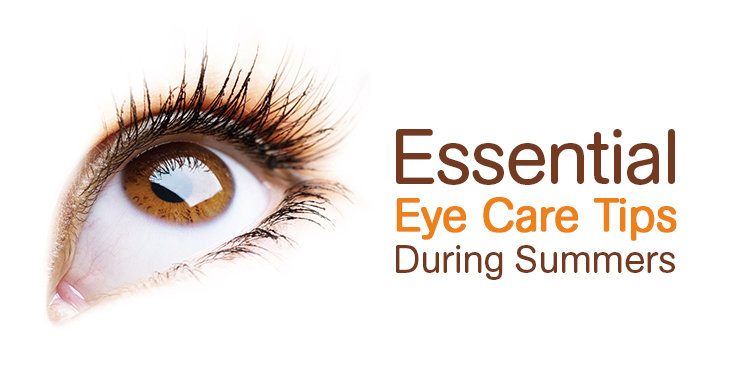Is Refractive Surgical Treatment Right for You? Elements to Think About for Better Eyecare
In the world of eye care, the decision to go through refractive surgical procedure is a significant one that requires thoughtful factor to consider. As individuals seek clearness and liberty from the constraints of corrective lenses, many elements enter into play when determining the suitability of such a procedure. From the ins and outs of one's eye health to the complexities of day-to-day habits and personal expectations, each facet holds significance in the broader landscape of refractive surgical treatment candidacy. By examining these vital components with care and precision, a clearer course in the direction of educated decision-making arises.
Eye Health And Wellness Evaluation
When considering refractive surgical procedure, a thorough eye health and wellness assessment is important to examine the viability of the procedure for each person. eye center andalusia. This examination involves a series of tests and exams performed by an eye care professional to establish the general health of the eyes, the visibility of any type of underlying problems, and the stability of the refractive mistake
Throughout the assessment, various aspects are thought about, such as the person's medical background, present eye prescription, corneal thickness, pupil size, and tear film high quality. These evaluations aid to determine any contraindications to refractive surgical treatment, such as corneal abnormalities, cataracts, or without treatment eye infections. Additionally, the analysis helps to take care of patient assumptions regarding the prospective end results of the surgery based upon their unique eye attributes.
Inevitably, the eye wellness evaluation is vital in making certain the safety and effectiveness of refractive surgical treatment, as it gives valuable insights into the individual's eye health and wellness condition and assists establish one of the most ideal therapy alternatives for achieving optimal aesthetic outcomes. (eye doctors in andalusia)
Way Of Life Evaluation
An extensive way of life evaluation is important in figuring out the suitability of refractive surgical treatment for an individual's visual correction demands. Way of living variables such as line of work, pastimes, and everyday activities play a crucial duty in the decision-making procedure relating to refractive surgical treatment. For example, individuals with careers that entail a high degree of exercise or direct exposure to ecological components may have different aesthetic needs contrasted to those with inactive workdesk tasks. Recognizing exactly how an individual's way of life may influence their vision post-surgery is necessary for managing assumptions and making sure optimal end results.
Additionally, way of life practices such as sporting activities participation, outside tasks, or perhaps skincare regimens can affect the healing process and total success of refractive surgery. People that involve in contact sports may require to take added precautions to safeguard their eyes throughout the recuperation duration. Additionally, individuals with comprehensive sun direct exposure might call for added post-operative care to prevent issues. By performing a detailed way of living analysis, eye treatment specialists can customize their recommendations and treatment plans to meet the distinct requirements of each individual, eventually causing boosted aesthetic end results and contentment.
Expectation Alignment

Clients require to comprehend that while numerous individuals attain 20/20 vision or better following refractive surgical procedure, some may still call for glasses for specific tasks like analysis or driving at evening. Managing these assumptions assists avoid dissatisfaction and frustration post-surgery, leading to an extra positive general experience for the individual.
Threat Evaluation

Elements that might boost the risk of problems include age, certain clinical problems like autoimmune diseases, unstable vision prescription, thin corneas, and impractical person expectations. In addition, choosing a skilled and seasoned surgeon, following pre and post-operative treatment directions vigilantly, and divulging any appropriate case history can help alleviate dangers.
To reduce the possibility of complications, eye doctors conduct complete pre-operative examinations to identify any type of contraindications to surgery. They also review the potential risks and advantages with patients throughout the appointment process. By taking part in open interaction and shared decision-making, both the eye doctor and the individual can interact to determine if refractive surgical procedure is the ideal choice based upon specific danger accounts and desired outcomes.
Assessment Relevance
Thinking about the vital duty of informed decision-making in examining dangers and potential complications in refractive surgical procedure, the examination procedure holds considerable importance in directing individuals towards optimum results. Throughout the examination, the eye doctor examines the client's eye health, refractive errors, and total viability for surgery. This preliminary analysis is important in figuring out the most suitable treatment for each and every person, thinking about variables such as corneal thickness, student dimension, and existing eye problems.
Furthermore, the consultation acts as a possibility for patients to discuss their expectations, worries, and any questions they may have regarding the surgical procedure. Clear communication between the doctor and the patient is necessary to guarantee practical assumptions and an extensive understanding of the potential threats and advantages involved.
Additionally, the examination allows the surgeon to discuss the different surgical options available, their corresponding end results, and the post-operative treatment needed. This thorough conversation equips individuals to make knowledgeable choices concerning their eye care, causing much better complete satisfaction and results post-surgery.
Verdict
To conclude, individuals taking into consideration refractive surgical procedure should go through a detailed eye health examination, analyze their lifestyle practices, align their assumptions with possible end results, assess the associated dangers, and focus on appointments with eye care professionals. These elements play a vital duty in establishing the viability of refractive surgical procedure for every individual, making sure ideal results and fulfillment with the treatment.
Individuals thinking about refractive surgical treatment commonly have high assumptions concerning the end results, expecting excellent vision without the requirement for glasses or get in touch with lenses. While refractive surgical treatment can considerably improve vision and decrease reliance on visual help, it is critical for individuals to comprehend that results might differ based on private aspects such as the level of refractive error, corneal density, and general eye health and wellness.
By engaging in open interaction and shared decision-making, both the individual read and the ophthalmologist can work with each other to figure out if refractive surgery is the appropriate option based on individual threat profiles and desired outcomes.
Considering the important function of educated decision-making in examining risks and possible problems in refractive surgical procedure, Get the facts the appointment procedure holds significant relevance in directing clients in the direction of ideal end results. During the appointment, the ophthalmologist evaluates the person's eye health and wellness, refractive mistakes, and overall viability for surgical procedure.